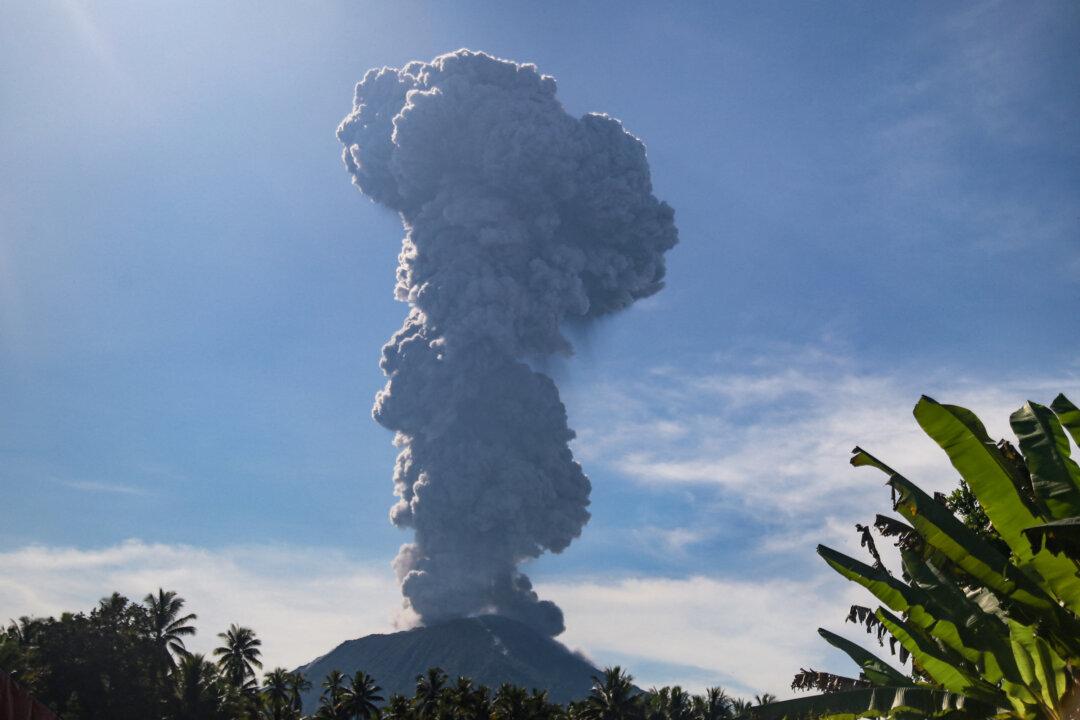Indonesian authorities evacuated residents from seven villages after Mount Ibu volcano erupted twice on the remote island of Halmahera over the weekend.
Indonesia’s National Disaster Agency (BNPB) stated on May 19 that Mount Ibu first erupted on the eve of May 18, spewing a column of ash up about 2.5 miles above the crater with “thick intensity,” accompanied by flashes of lightning.





